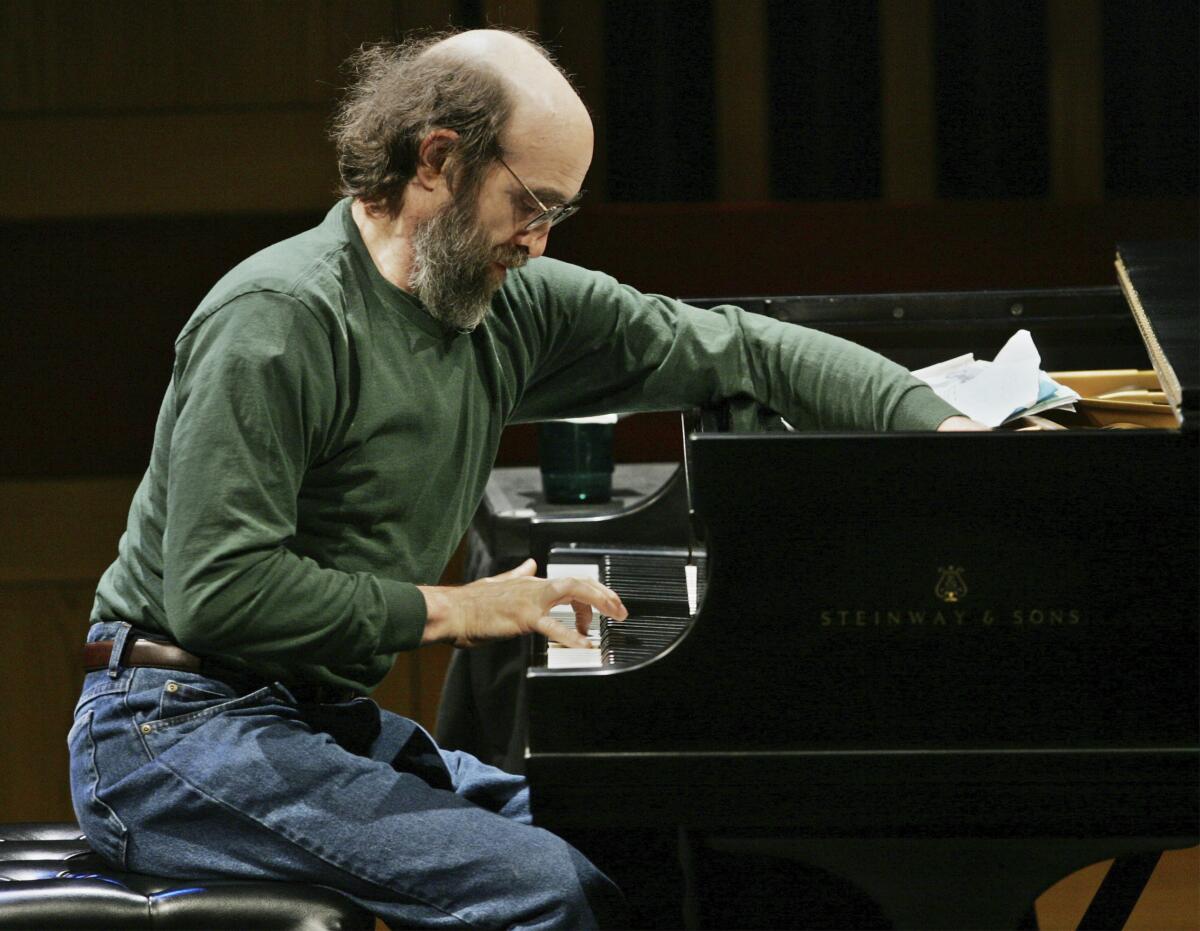George Winston, million-selling new age pianist, dies at age 73

- Share via
George Winston, the Grammy-winning pianist who blended jazz, classical, folk and other stylings on such million-selling albums as “Autumn,” “Winter Into Spring” and “December,” has died at age 73.
According to an announcement on his website www.georgewinston.com, confirmed by a spokesman, Winston died Sunday after a 10-year battle with cancer.
“Throughout his cancer treatments, George continued to write and record new music, and he stayed true to his greatest passion: performing for live audiences while raising funds for Feeding America to help fight the national hunger crisis along with donating proceeds from each of his concerts to local food banks,” a statement on his website reads.
His most recent album, “Night,” came out last year.
Los Angeles boasts the highest concentration of top-notch recording studios in the world. We’ve mapped out 32 of the spaces where SZA, the Beach Boys, Frank Ocean, Neil Diamond and others have made musical magic.
Winston was a native of Hart, Mich., who grew up in Montana, Florida and Mississippi and drew upon influences ranging from Fats Waller to the Doors. He released more than a dozen solo piano albums, along with soundtracks for the TV miniseries “This Is America, Charlie Brown” and “The Velveteen Rabbit,” which featured Meryl Streep’s narration of the children’s classic. His 1995 release “Forest” won a Grammy for best New Age recording, while his Doors tribute “Night Divides the Day” received a Grammy nomination in 2004 for best contemporary instrumental album.
“I came up with the melodic style that I play in 1971, and I have always called it ‘Folk Piano,’ [or more accurately ‘Rural Folk Piano’], since it is melodic and not complicated in its approach, like folk guitar picking and folk songs, and has a rural sensibility,” reads a quote from a “Q & A” section on his website.
“I just play the songs the best I can, inspired by the seasons and the topographies and regions, and, occasionally, by sociological elements, and try to improve as a player over time.”
More to Read
The biggest entertainment stories
Get our big stories about Hollywood, film, television, music, arts, culture and more right in your inbox as soon as they publish.
You may occasionally receive promotional content from the Los Angeles Times.









